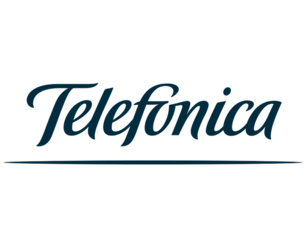Noticias de Telefónica
Second edition of Big Data for Social Good Day
Big Data will be key to achieving a large part of the Sustainable Development Goals set by the United Nations
Telefónica, through LUCA, its data unit, gathered representatives of several international organizations yesterday in Madrid during the celebration of the second edition of the Big Data for Social Good (BD4SG) Day. The event highlighted the potential of the analysis of data to promote positive social changes in general and, specifically in this edition, the importance of big data to fight climate change and help with planning, to be able to respond more effectively to natural disasters.
Under the slogan "Are you ready for a wild world?", experts from organizations such as FAO, UNICEF, the Spanish Ministry of Agriculture and Fisheries, Food and Environment (MAPAMA), came together with experts from sector organizations such as the GSMA, which brings together the main operators of the world; and companies such as Data-Pop Alliance and Digital Globe. They all highlighted the importance of having information and data systems that translate into key anticipatory actions.
"Since 1980, natural disasters have hit every continent and region of the world with increasing frequency and intensity," said Natalia Winder Rossi, head of Social Protection at FAO. "FAO and Telefónica are working together to take advantage of the use of state-of-the-art digital technologies for agricultural development, food security and nutrition, and specifically, to prepare and strengthen farmers in the face of extreme weather events related to climate change".
Currently there are some 6bn mobile phones in the world and 80% of them are in developing countries. This provides an interconnected network with immense potential to generate very valuable information that allows, thanks to anonymous and aggregated data, to optimize resources, reduce CO2 emissions, create poverty indicators that help to understand the economic challenges of developing countries, manage natural disasters more efficiently or help address the great challenges facing humanity. The possibilities are endless.
Big data to achieve the United Nations Sustainable Development Goals
Big Data can be a real catalyst and contribute to the achievement of many of these objectives, which seek to ensure a more equitable and environmentally sustainable development, with special attention to reducing the dangers of human-induced climate change and reducing extreme poverty.
Thus, they can help improve agricultural productivity (Objective 2), traffic management and mobility in cities (Objective 11), efficiency of companies (Objective 9) or control of disease transmission (Objective 3). Data can also help follow the evolution of each one of the proposed objectives, allowing the analysis of their compliance and improving decision making, not only at a business level, but also at the level of public policies.
Many international organizations have already realized the potential of the data economy for social purposes. The GSMA is one of them, and launched the "Big Data for Social Good" initiative in which Telefónica also participates, at the Mobile World Congress in 2017. The initiative aims to enhance collaboration among mobile operators and use their data to predict and manage global crises such as epidemics, pollution or natural disasters. In this sense, the GSMA works on the development of global tools to achieve these objectives.
Currently there is a general consensus that big data for social purposes should be treated as a collaboration tool in which private companies and public administrations share data to generate a social benefit. In fact, Goal 17 of the sustainable development objectives has an impact on this aspect, forging alliances to achieve these objectives.
For her part, Isabel Bombal, adviser to the General Directorate of Rural Development and Forest Policy-MAPAMA, highlighted how to overcome the barriers that arise when the fact of sharing data comes up: "The first incentive to make data exchange possible is to explain the benefits of why it is important." Alliances that share data of various kinds (mobile, financial, satellite image, etc.) and that incorporate the agencies that will make use of the generated tools are especially relevant. In this way, a virtuous circle is generated, in which data and analytics providers together with the applicants collaborate in the design of the solution.
Regarding the tools, Emmanuel Letouzé, director of Data-Pop Alliance, referred to the Open Algorithms project (OPAL), which consists of a platform that seeks to unleash the potential of private data for social good, maintaining privacy in the center of the project, in a scalable and socially and economically sustainable way.
Precisely, privacy of the data was one of the keys of this event. Data has a huge potential to improve people's lives, however, regardless of whether the objective when working with the data is philanthropic or business, privacy is fundamental. "Privacy is a right and we must be very protective of that," said Elena Gil, CEO of LUCA during the day.
Alberto López, Director of Business Development at Digital Globe, also highlighted the importance of collaboration between all types of institutions and the combination of different types of data, and explained how geospatial data can be used to create 3D models capable of predicting floods or detect human settlements in isolated areas of Africa.
Finally, participants in the second edition of the Big Data for Social Good Day organized by LUCA, stressed that it is essential that these initiatives are sustainable over time. This implies that they include a viability plan in the medium or long term. In this way, once overcoming the scope that proofs of concept or pilots may have, they guarantee the availability of the service to the actors that make use of the tools, that is, humanitarian aid organizations and governments.












